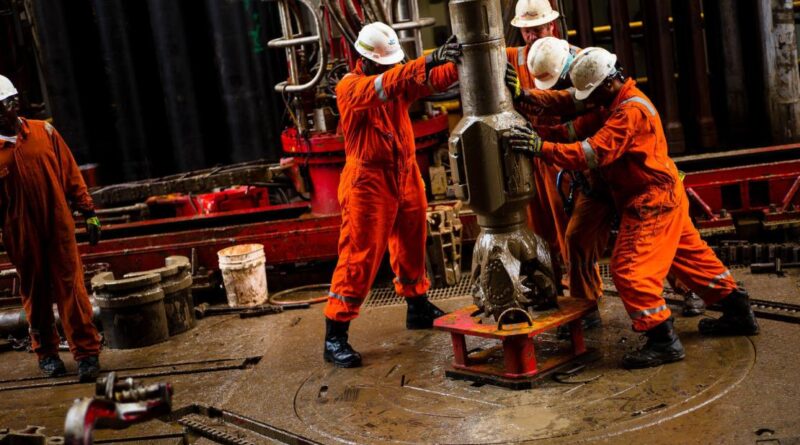Is Oil & Gas Production a Good Career Path?
If you’re considering a career in oil & gas production, there are several things to consider. First of all, you will need to know the immigration rules and policies of your chosen country. Some countries do not allow foreigners to own mineral rights, while others will welcome foreign workers. You should also know how to stay safe in the work environment.
What Is Oil & Gas Production?
Table of Contents
When describing production, E&P companies often refer to it in barrels of oil equivalent. A barrel of oil is equal to approximately 6,040 cubic feet of gas. This conversion makes it easy to understand what a company is producing. In fact, the United States is one of the largest oil and gas producers in the world. Last year, it released one million barrels of oil equivalent from its Strategic Petroleum Reserve.
The process of producing oil and gas involves a series of steps, starting with site exploration. The next steps involve extraction, transportation, and distribution to businesses. Throughout the process, oil and gas is processed into products for everyday use. These products include gasoline, diesel, jet fuel, petrochemicals, plastics, and fertilizers.
The oil and gas industry is broken down into three main segments: upstream, midstream, and downstream. Upstream oil and gas companies are responsible for finding and drilling oil and gas wells, while midstream companies transport oil and gas to refineries. Lastly, downstream companies refine the crude oil and sell the finished products.
How To Start A Career In The Oil And Gas Industry?
The oil and gas industry has numerous opportunities for a wide variety of people, from engineers to tradesmen. This type of job offers predictability and the chance to work outdoors, and is a good fit for people who like to be in nature. This type of career is rewarding and challenging.
There are many ways to break into this industry, but one of the best is to make connections and network with people inside the industry. This can be done through professional associations and alumni associations. You can also try to make contacts with individuals at oil and gas companies. Ask them about their experience, ask them for coffee, and see if you can get in touch.
The oil and gas industry is a lucrative career choice that requires a range of skills. Some of the most common positions are entry-level, while others require extensive education and licensing. However, no matter which field you choose, the demand for oil and gas workers is very high. This makes the industry a good option for anyone looking for a career change.
With hundreds of thousands of jobs around the world and hundreds of billions of dollars in global revenues each year, the oil and gas industry is a global powerhouse. With this growth and change comes a variety of exciting opportunities for technical and engineering professionals. It can be a dangerous job, but it also presents a unique and rewarding opportunity. You can work as a driller, a drilling rig worker, a technical engineer, or even as a talent acquisition manager.
Oil & Gas Production Jobs: thnings to know
Before applying for an Oil & Gas Production Job, it’s important to understand the industry. Oil and gas production is a volatile industry, and prices fluctuate constantly, making it difficult to plan ahead. When prices drop, companies often have to lay off workers. As a result, it’s not always easy to find a job in this sector – even if you have a lot of connections.
As the population grows, so does the demand for energy. The demand for oil and gas will continue to rise. Oil and gas production jobs offer a range of benefits, including competitive salaries, generous bonuses, retirement plans, and paid time off, holidays, and vacation days. Oil and gas production jobs can be found throughout North America.
Oil and gas production jobs require a diverse skill set. You need to have a thorough understanding of the industry and be willing to work in stressful situations. The oil and gas industry is a great choice for those who enjoy working outdoors and predictability. People with technical training or advanced degrees can apply for jobs in this industry.
Workplace Safety
Whether you’re a contractor, owner, or a regulator, workplace safety in oil & gas production is a top priority. The industry’s safety record is impressive, but it is not without risks. For example, the workplace culture of some companies can negatively affect safety. Rather than promoting the ‘tough guy’ stereotype, encourage a sense of community among workers. This culture will encourage workers to ask for assistance, follow rules, and be open and honest when making mistakes. These factors will contribute to an environment that is safe for everyone.
In addition to developing a safer work environment, workplace safety in oil & gas production requires employees to be properly trained in the safe use of hand tools. Moreover, employers are also responsible for the safety of the equipment and tools they supply to their employees. It is important that all employees receive adequate Health & Safety training during the induction process. They should also be equipped with appropriate safety clothing and protective equipment.
While oil and gas production requires a wide variety of materials and equipment, preventing accidents and injuries is the top priority. For example, motor vehicle accidents are a major cause of fatalities in the oil and gas industry, according to the National Institute for Occupational Safety and Health.
Payscale
The average pay for people working in oil and gas production in India is about Rs. 625,000 per year. This is almost a third higher than the national average. Entry-level employees earn a minimum of Rs. 356,250 a year, while experienced workers earn over Rs. 1,600,000. However, salaries may vary considerably depending on the location.
The oil & gas industry is a growing industry with many high-paying jobs. Some of these positions pay six-figure salaries. Professional engineers and geoscientists, as well as labour workers, are in high demand worldwide. These workers are necessary for drilling jobs, pipelines, and refineries.
Salaries in the oil and gas industry vary based on the location and the type of job. For example, petroleum, mining, and geological engineers make the highest salaries, with other professionals in the oil industry earning the least. While the salary in each sector may differ, the average oil and gas industry job pays between $26,000 and $155,000.
Working Cobditions
Working conditions in oil & gas production vary from region to region. Some of the most challenging conditions are associated with offshore oil rigs. However, this is a small proportion of the total jobs in this industry. The conditions will depend on the location of the job position.
Oil and gas workers are exposed to a variety of hazards, including confined spaces, explosive gases, and extremely high pressures. As a result, there is a great risk of accidents and injuries, including second, third, and even fourth-degree burns, amputations, and respiratory problems caused by toxic fumes. While these hazards are inherent in the industry, proper training and safety equipment can reduce the risk of workplace accidents.
While high wages have historically motivated workers in the oil and gas industry, the lack of job security has made people re-examine their priorities. Many workers today value family time, health, and quality of life above high salaries. Oil and gas workers often have to work long hours and are far from home. In addition to this, job security in the industry is not a guarantee, with two major collapses over the last decade causing mass layoffs.
Oil & gas production can be challenging, but the pay is good and many people are willing to take the risks to provide good income for their families. As you gain experience, you can expect to earn a higher salary, with the possibility to move up the corporate ladder.
Industry’s Future
The oil and gas industry is not immune from the impacts of climate change. Rising sea levels, extreme weather, and increasingly unstable environmental conditions are just a few of the effects the industry is already feeling. These changes make it more difficult for companies to operate in such a deteriorating environment. Furthermore, the ecological fallout of these changes affects not only the bottom line of the industry, but the communities that rely on those industries.
In order to meet these challenges, the industry must transform its operations. Technology plays an essential role in helping oil and gas companies meet their business objectives and shape the future of the industry. Specifically, data analytics, artificial intelligence, machine learning, and Internet of Things (IoT) technologies are helping to drive digital transformation in oil and gas companies. In addition, digitalisation has helped oil companies optimize their operations by eliminating manual processes and enabling them to be more efficient.
As oil prices have declined, the oil and gas industry has struggled to increase its profits. The lack of profitability has reduced free cash flow from core operations and increased the industry’s leverage ratio, doubling since the 2008 financial crisis. However, the oil and gas industry still plays an important role in the future of energy and enables nearly a billion people to access energy. As other sources of energy come on the scene, the oil and gas industry must figure out how to leverage its expertise and a
9 Best Paying Jobs In Oil And Gas Production
Oil and gas companies are known for spending millions of dollars recruiting qualified candidates. Many of these candidates hold petroleum engineering degrees. Their job duties include designing and selecting well equipment and monitoring well flow. They are often considered the backbone of the oil and gas industry. These professionals are in high demand and can earn hundreds of thousands of dollars per year.
1. Excavating Engineer
In this field, you’ll oversee the crew on the rig and oversee all drilling operations. This job requires a high level of technical and financial skills, but the pay is high. You can earn $154,421 per year as an excavating engineer.
The oil & gas industry is a very lucrative field with many well-paid jobs. The top salaries can reach six figures. We spoke to a professional engineer in the field, Usama, who graduated from the University of Alberta. In his free time, Usama enjoys hiking, playing tennis, and reading.
In this field, you’ll work with other professionals in order to design and build wells. You’ll also monitor wells and identify structural and geologic problems. Additionally, you’ll oversee the installation of other equipment and maintain the well’s health. Project engineers also monitor and resolve conflicts among employees and update company policies.
2. Petroleum Geologist
A Petroleum Geologist works at the heart of oil and gas production. He or she visits drilling sites, makes many cross-sections, and runs many computer simulations. While most of their work is done in an office, they may have to travel to remote areas for several months. They may also have to navigate rough terrain by foot, all-terrain vehicle, helicopter, or boat.
A degree in geology is required to become a petroleum geologist. However, people with bachelor’s degrees in other fields may be eligible if they have taken courses related to geology. The salary of a petroleum geologist varies widely depending on experience and the company. However, the median salary for petroleum geologists over six years of experience is $150600.
A Petroleum Geologist works in the oil & gas industry to find new oil and gas deposits. This job requires technical expertise, the ability to communicate well with other team members, and the ability to work efficiently. In addition, this position requires great collaboration skills and the ability to be proactive and understand client needs.
3. Completions Engineer
Completions Engineers are responsible for the final stages of a well’s drilling process. These stages involve planning and data assimilation. They also organize and coordinate staff, equipment, and deliveries. In addition, completions engineers report to upper management.
Completions engineers optimize well designs and operations by using geological and geophysical knowledge. They decide on subsurface control and surveillance equipment, develop cost estimates and risk studies, and oversee the completion of wells. In addition, they may be responsible for well testing. The education required for a job as a completions engineer includes mathematics and science prerequisites, as well as core petroleum engineering courses, such as fluid mechanics and thermodynamics.
Completions engineers also supervise the general production of oil wells. They are responsible for designing and implementing procedures to complete oil wells safely and efficiently. They also monitor and reduce the costs incurred by oil companies by ensuring the safety of employees and the environment around the well. Additionally, they may be responsible for creating and maintaining company policies and procedures.
4. Lease Purchase Operator
Lease purchase operators are one of the highest-paid jobs in oil and gas production. This job involves negotiating deals on oil and gas leases and managing them. This position requires advanced mechanical knowledge and training. Other responsibilities of lease operators include monitoring the flow of oil and gas and selecting the appropriate equipment for wells.
In the oil and gas industry, a Lease Purchase Operator is one of the most important people to have in the field. These individuals are responsible for transporting oil and gas to refineries and storage facilities. They also maintain the safety of the equipment that helps transport oil. This job also requires many traveling hours.
A lease operator needs to have oil field experience and be able to work onsite for long periods. Besides oil field experience, lease operators must also possess good mechanical, computer, and interpersonal skills. On average, a lease operator earns $64,634 annually.
5. Production Engineer
A Production Engineer is responsible for overseeing and monitoring oil and gas wells. Their work includes assessing and optimizing downhole equipment, sand control, pipe flow systems, and well completions. They also work to design subsurface and surface production facilities. They are integral members of the Area Asset Team and work in a collaborative environment. In addition, they analyze individual well performance and develop methods to extract more oil and gas.
To become a Production Engineer, a bachelor’s degree in engineering from an ABET-accredited program is required. Then, applicants must pass several exams, complete an internship, and gain relevant work experience. Many production engineers also pursue a master’s degree, which can lead to management positions with higher salaries. This job requires long hours and traveling.
If you are interested in a high-paying career in the oil and gas industry, a Production Engineer position might be the perfect choice. This field has a high hourly pay, and is considered one of the best paying jobs in oil and natural gas production.
6. Drilling Supervisor
Drilling supervisors are responsible for overseeing commercial oil drilling and workover processes. They may also supervise onshore projects. The job requires knowledge of engineering and petroleum geology. They create plans for drilling, coordinate the activities of the site, and coordinate and manage drilling operations. Drilling supervisors may work on projects in multiple locations and may travel for projects.
Oil and gas drilling is a complex and high-stakes process, and a drilling supervisor is responsible for overseeing operations on the rig. These employees are responsible for ensuring that the operations are safe and efficient. These professionals work closely with a project manager.
Typically, drilling supervisors have several years of experience. Some employers prefer candidates with bachelor’s degrees, but there are also training programs for those who don’t have a degree. Drilling supervisors must have excellent leadership and problem-solving skills and must have some computer skills. Experience in managing other people is also helpful.
7. Geophysicist
Geophysicists study the physical properties of the earth. They collect and interpret seismic data, which helps oil and gas companies figure out what lies beneath the earth’s surface. Because these data are critical for oil and gas exploration and production, geophysicists play a crucial role in the industry. They also help gather and evaluate well data.
Geophysicists are typically educated at universities and graduate schools with degrees in geology or geological engineering. They often also have experience in the field. Geophysicists often work in a variety of teams and specialize in certain areas of exploration. Often, initial training is done on the job. The first six months of training are often intense and include health and safety training, field work, and exposure to geophysics and seismic data processing. Most firms also offer a probationary period, and competency-based appraisals are common.
A geophysicist’s salary depends on experience, education, and location. These engineers earn between $65,000 and $183,000 a year, depending on their level of training and industry. These engineers work offshore oil platforms to maximize oil and gas production from a given field.
9. Chemical Engineer
Working as a petrochemical engineer in the oil and gas industry is an extremely lucrative career choice. Petrochemical engineers are responsible for developing processes to break down crude oil and transform it into useful products. This multidisciplinary career requires a solid understanding of both science and mathematics. A successful candidate will be able to balance multiple tasks and work within a team.
Chemical engineers often pursue a Master’s or Doctorate degree. Their education and experience allow them to apply the advanced knowledge of physics, chemistry, and engineering to various projects. They are also responsible for ensuring that the process runs smoothly and in compliance with all regulations and environmental standards.
While there are many options for those looking to work in the oil and gas industry, it is essential to understand the specific field of your choice. A degree in chemical engineering or petroleum engineering is required. Once you have earned a degree, you can choose a role based on your expertise and aptitude.
Read on: Usglobalworld.com




